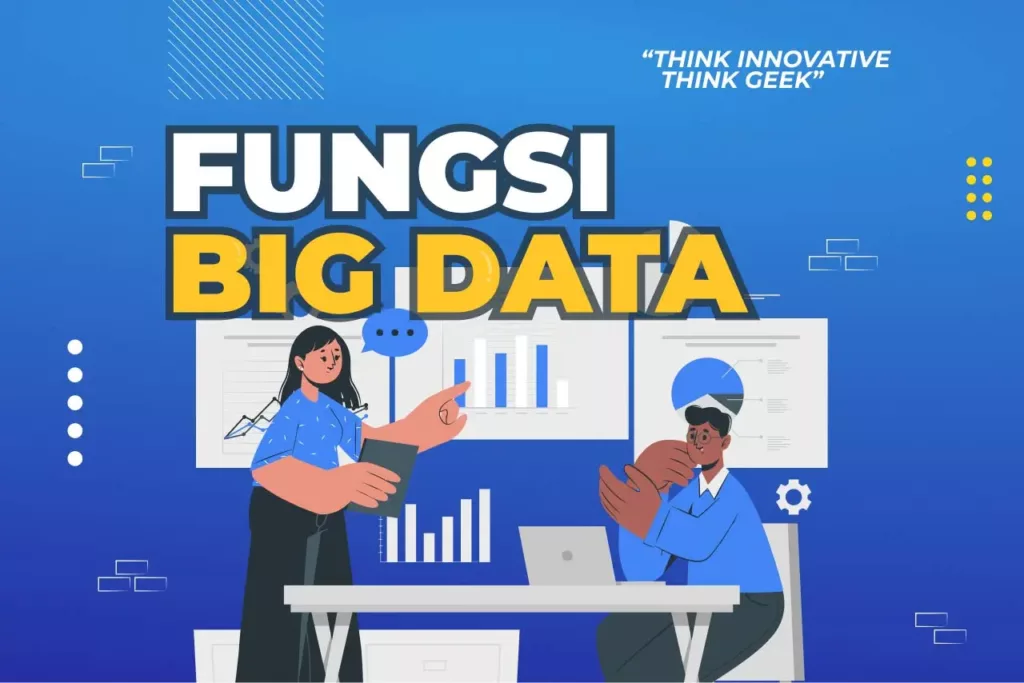In the rapidly evolving digital era, big data has become a crucial element across various sectors, including the financial sector. The concept of big data refers to the collection, storage, and analysis of massive amounts of data. By understanding the functions of big data, we can see how data is generated from various sources. In this article, you’ll learn about big data role in business, particularly in finance and banking. Let’s explore the insights in the following article!
Big Data Role in Financial Markets
Big data has opened new opportunities in the financial world, especially in trend analysis and market prediction. Its role in financial markets is essential in monitoring changes, identifying trends, and reducing risks.
One of the most significant functions of big data is its ability to monitor and analyze market trends in real-time. In the past, tracking market changes required considerable time and resources.
However, with big data technology, companies can now observe market fluctuations in seconds. Data gathered from various trading platforms, social media, and financial news can be analyzed to detect movement patterns that may influence investment decisions.
Moreover, big data is also used to analyze historical data to predict future trends. In the financial sector, historical data is highly valuable in making more accurate predictions.
For instance, financial institutions can analyze historical data on stock movements, exchange rates, or commodities to identify recurring patterns and provide better forecasts for upcoming trends.
By leveraging the functions of big data, financial companies can plan more effective strategies based on predictions supported by strong data.
The Benefits of Big Data in Predicting Financial Trends
Big data role in business, especially in the financial sector, has brought many benefits. From more accurate predictions to risk reduction, big data has become an invaluable tool in decision-making.
1. Predicting Financial Trends
Big data helps companies in predicting financial trends by processing large amounts of data from various sources. Through deep analysis, businesses can identify emerging patterns in the market and anticipate price movements or other fluctuations. This not only aids in short-term strategy planning but also in creating more precise long-term projections.
2. Reducing Investment Risk
One of the primary benefits of using big data in business is its ability to reduce investment risk. By analyzing various factors, such as market trends, industry performance, and consumer behavior, companies can make smarter investment decisions. The vast amount of real-time data allows businesses to identify potential risks before they occur, thereby reducing the likelihood of losses.
3. Faster Decision-Making
Speed is a key element in the financial sector. With big data, companies can make faster and more accurate decisions. For example, in stock trading, big data enables analysts to make purchase or sale decisions based on real-time information, reducing risks and maximizing profit potential. Faster decisions allow companies to remain competitive in an ever-changing market environment.
4. Deeper Understanding of Diverse Markets
Big data not only helps in understanding one market but also provides a deeper understanding of various markets globally. By analyzing data from different sources, financial companies can identify opportunities in global markets and respond quickly to changes. This allows businesses to be more flexible and responsive to emerging market trends.
5 Financial Companies Utilizing Big Data
Many major financial companies have adopted big data technology to improve their analysis and make more accurate predictions. Here are five prominent financial companies that effectively use big data:
1. JP Morgan & Chase
JP Morgan & Chase, one of the largest banks in the world, uses big data to manage credit risk, conduct predictive analysis, and understand customer behavior. With big data technology, they can process and conduct data management to forecast market trends and reduce investment risk.
2. Goldman Sachs
Goldman Sachs, a leading financial services institution, leverages the functions of big data to analyze data from their trading and financial activities. With advanced data analysis tools, they can better predict market movements and efficiently manage their clients’ portfolios.
3. American Express
As one of the largest credit card companies, American Express uses big data to monitor user transaction activity in real-time. This helps them detect suspicious activities, analyze spending trends, and provide more personalized offers to their customers.
4. BlackRock
BlackRock, a global asset management firm, uses big data to analyze portfolio performance and predict investment trends. This technology enables them to make smarter investment decisions and maximize value for their clients.
5. Morgan Stanley
Morgan Stanley utilizes big data to analyze global financial market trends and provide more accurate investment advice. They use data analysis to identify opportunities in emerging markets and help clients maximize profits.
These examples highlight the transformative impact of big data on the financial sector. In a world full of uncertainties, big data has become a crucial pillar in predicting trends, reducing risks, and enhancing decision-making. By harnessing the power of data, financial companies can make better decisions and adapt to the ever-changing market landscape.
If you’re interested in learning more about big datarole and how can it improves your business performance, don’t hesitate to contact us at GeekGarden. We offer a variety of big data services that can help your company grow.
Author: Sari Dewi (Content Writer)
Editor: Helmi Maulidina (SEO Specialist)















